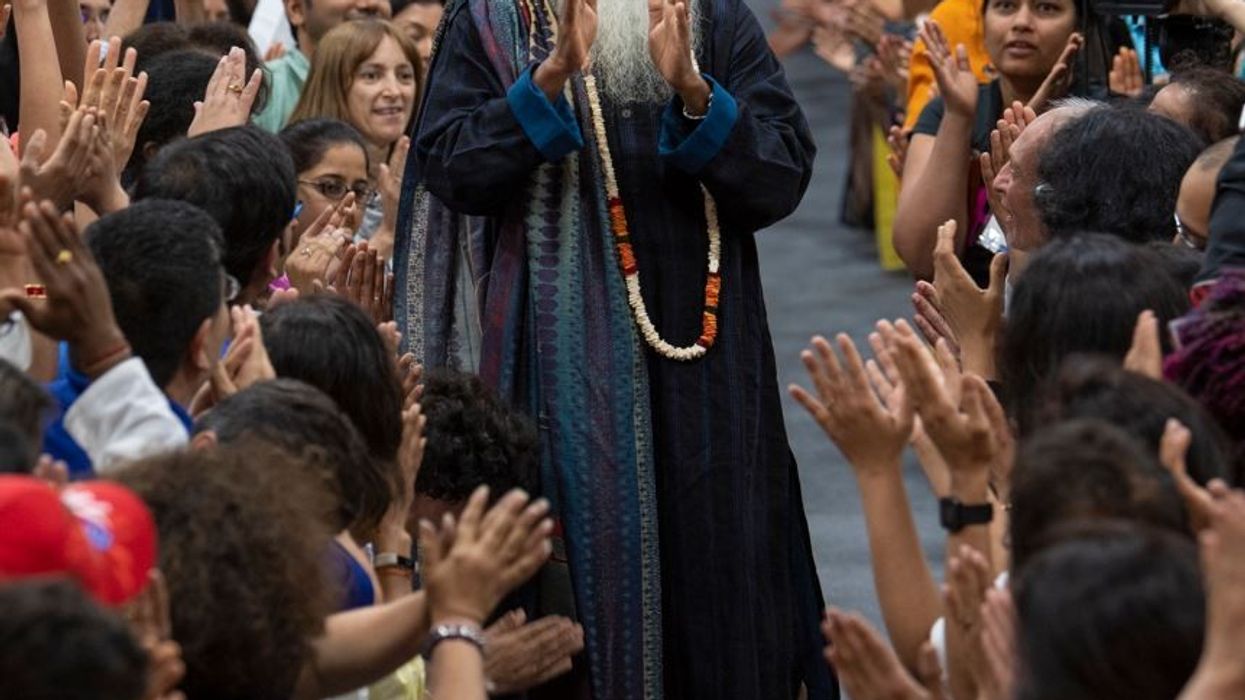OF THE four major forces in the world – politics, military, religion and economics – that decide the quality of people’s lives to a large extent, I see the economic force as the biggest possibility for bringing about some unification and sensible action. In the next ten to fifteen years, the economic leadership is poised to play a far more important role in the world than the others.
Therefore, we are presented with a great opportunity for large-scale change. More than eighty percent of the world’s wealth is controlled by just a few thousand people. Even if just ten per cent change happens in their hearts, the world will change. The world is hungry not because there is no food. There is more food than the seven billion people on the planet can eat. It is just that those who need it do not get it, because one way or the other, those who have the power and the means have not cared enough to do something about it.
Today’s corporations have grown to such a size that they are as big as governments. That is why today’s corporate leaders are required to travel extensively, handle a variety of issues and complexities, and above all, deal with people from diverse backgrounds and cultures. Therefore, a truly successful corporate leader should be very versatile and able to multitask in complex situations. If any human being has to handle very complex issues on a daily basis without being pulled down by those issues and situations, it is extremely important that he is spiritually equipped.
What we refer to as spirituality is just technology for inner wellbeing. Unfortunately, in the course of transferring the spiritual processes through generations, cultural and religious influences naturally become part of it. A spiritual process which is free of cultural and religious trappings is most needed today. Spiritual process need not be taught as a philosophy or a belief system. It can be imparted as simple methods which will naturally lead to a more inclusive way of experiencing life.
The people who make decisions for everybody should be in a good condition because their decisions impact not just them but also a large number of lives. The business community needs to shift from operating from limited ambition to a larger vision. It is very important that they are more peaceful and joyful within themselves by their own nature, not because of the quarterly balance sheet.
The whole modern economy, the very economic engine runs only if people keep buying. When we have an economy like this, we are trying to include more and more people into our list of clients or customers. The idea is to include the whole seven billion people on the planet. Right now, only approximately 40 percent of the world’s population is involved in the economic activity in a meaningful way. Excluding 60 percent of the population and doing business does not make sense – neither your market base nor your human resources have expanded. Expansion is inclusion. You can expand either by conquering or by including. Conquering is a violent way of doing things. So we need to have a model where all businesses can work with more inclusion. That is why we are talking about inclusive economics. It is a gentler way of doing business.
If we want a gentler and more compassionate economic process, it is not charity but inclusiveness that is needed. If there is no sense of inclusiveness in individual human beings, there is no way that the systems they create or actions they perform will lead to inclusiveness.
Spirituality does not mean going to the temple or breaking coconuts there. It is about living here in an allinclusive way, experiencing everything as a part of yourself. Knowing and experiencing life as life, not as individual personalities. One basic aspect of a spiritual process is that it makes one into an all-inclusive human being. At the same time it will hugely equip the individual to be more efficient, more capable, more balanced and in turn more productive. This is good for business. This is good for the world.
Ranked among the 50 most influential people in India, Sadhguru is a yogi, mystic, visionary and bestselling author. He was honoured with the Padma Vibhushan, India’s highest civilian award, in 2017, for exceptional and distinguished service.




